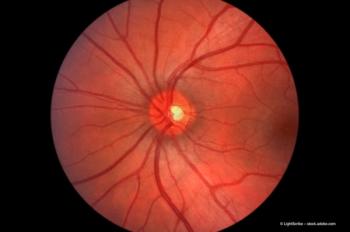
Rho-kinase inhibition shows potential as a therapy for proliferative vitreoretinopathy
Dr Leo Kim discusses his presentation at ASRS 2021, entitled "Rho-kinase inhibition on an in vitro patient-derived model of proliferative vitreoretinopathy."
At the ASRS 39th Annual Scientific Meeting, Dr Leo Kim presented research on a potential therapy for proliferative vitreoretinopathy (PVR). He discusses his talk, "Rho-kinase Inhibition on an In Vitro Patient-Derived Model of Proliferative Vitreoretinopathy" in this video interview.
Dr Kim practices as a retina surgeon at Massachusetts Eye and Ear. Additionally, he is an assistant scientist at Schepens Eye Research Institute, and he serves as an assistant professor of ophthalmology at Harvard Medical School.
Video transcript
Dr Leo Kim: So in our lab, we work on a condition called proliferative vitreoretinopathy [PVR], which is a condition where there's scar tissue formation after a retinal detachment, and after repair of retinal detachment. And what we did in our lab is that we grow patient derived membranes in cell culture. And we use this model to investigate the physiology of PVR, as well as to look at drugs that can regulate or modulate PVR.
And one of the class of drugs that we looked at in our lab was rho-kinase inhibitors. And what we found was that it does seem to regulate this process called epithelial mesenchymal transition within our PVR cells. And what that means is that it regulates the growth of those cells, it regulates the migration of those cells, as well as in some of the rho-kinase inhibitors actually induced cell death of those kind of pathological cells.
What we think is that this is a potential therapeutic modality for the treatment of PVR because you know, this, these are the things you want to do you want to regulate the proliferation, the growth of those cells, the migration of those cells and that scar tissue formation, right? We think that this, you know, has a potential to be treatment for PVR.
So you know, this is clearly a preclinical model where we're, you know, growing the cultures in—in the lab. The next step will be trying to, you know, try to get this into patients and see if there's a potential therapeutic use in patients that have proliferative vitreoretinopathy.
The American Society of Retina Specialists (ASRS) hosted its 39th Annual Scientific Meeting from the 8th to the 12th of October, 2021, at the JW Marriott San Antonio Hill Country Resort and Spa in San Antonio, Texas.
According to ASRS, its 2021 scientific programme offered attendees innovations in retina science, clinical practice and surgery with 148 papers, 165 posters, 46 papers on demand, and 69 films, as well as a wide range of networking opportunities and the chance to exchange ideas and perspectives with peers.
Related Content:
Newsletter
Get the essential updates shaping the future of pharma manufacturing and compliance—subscribe today to Pharmaceutical Technology and never miss a breakthrough.




























